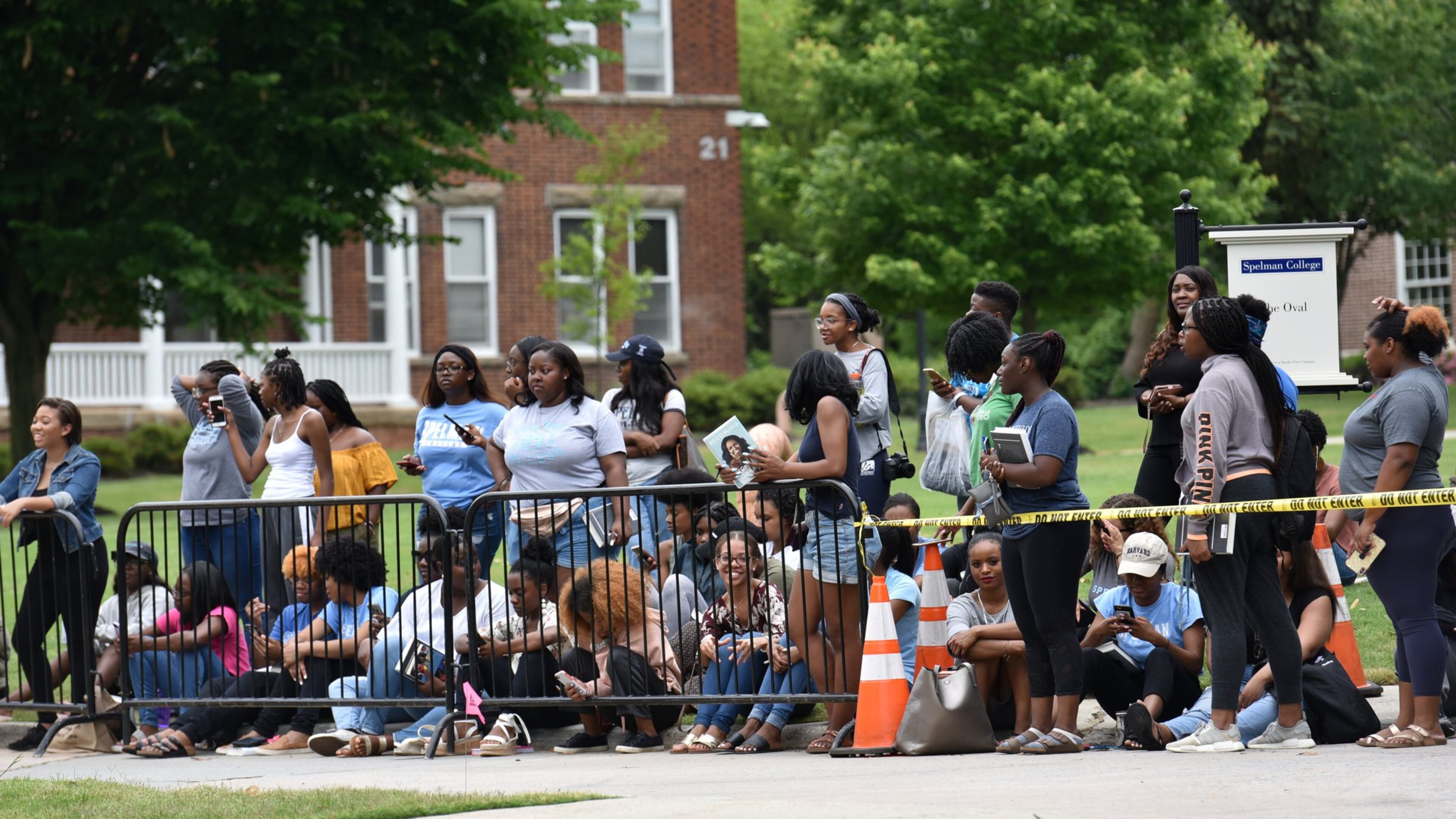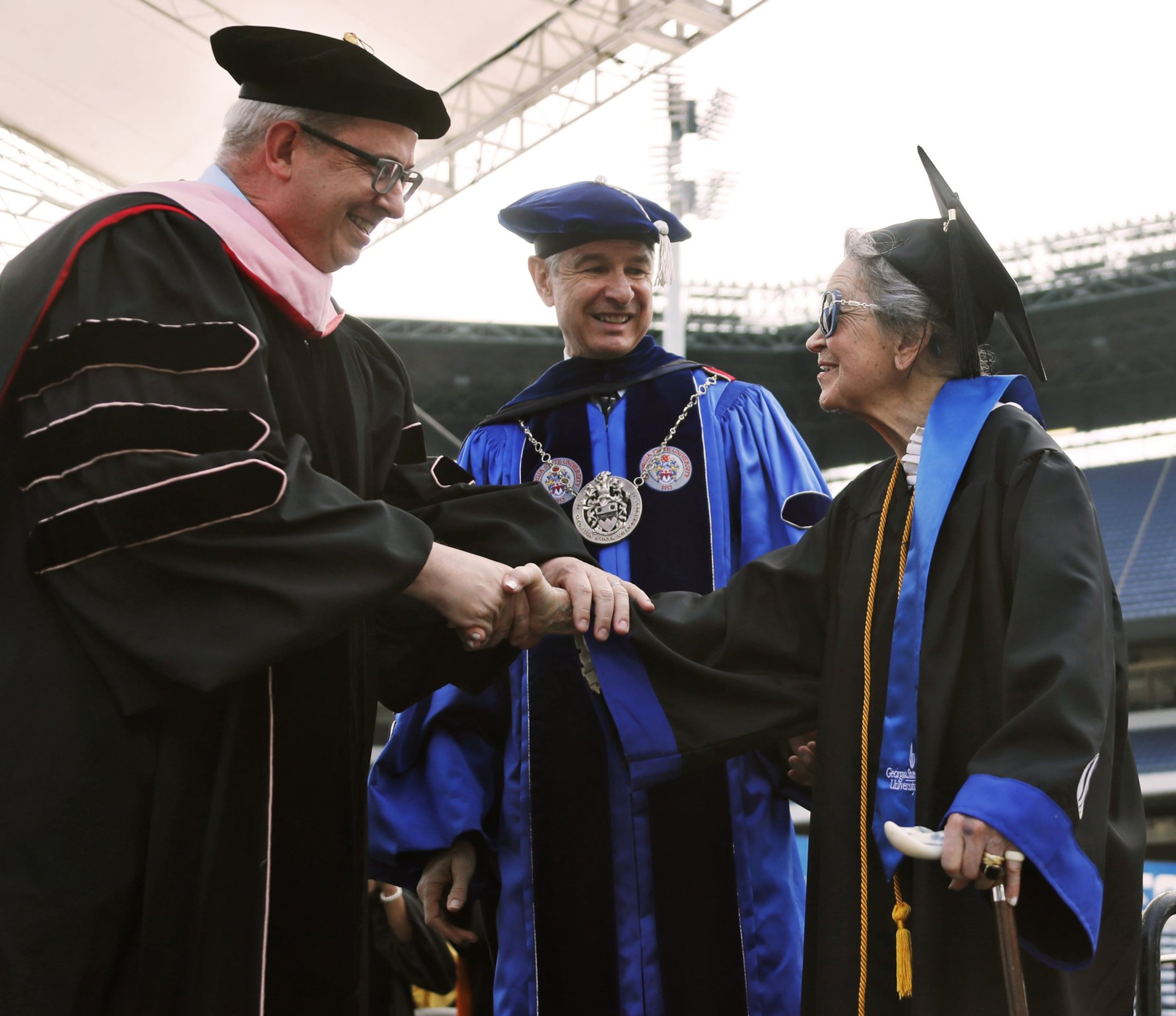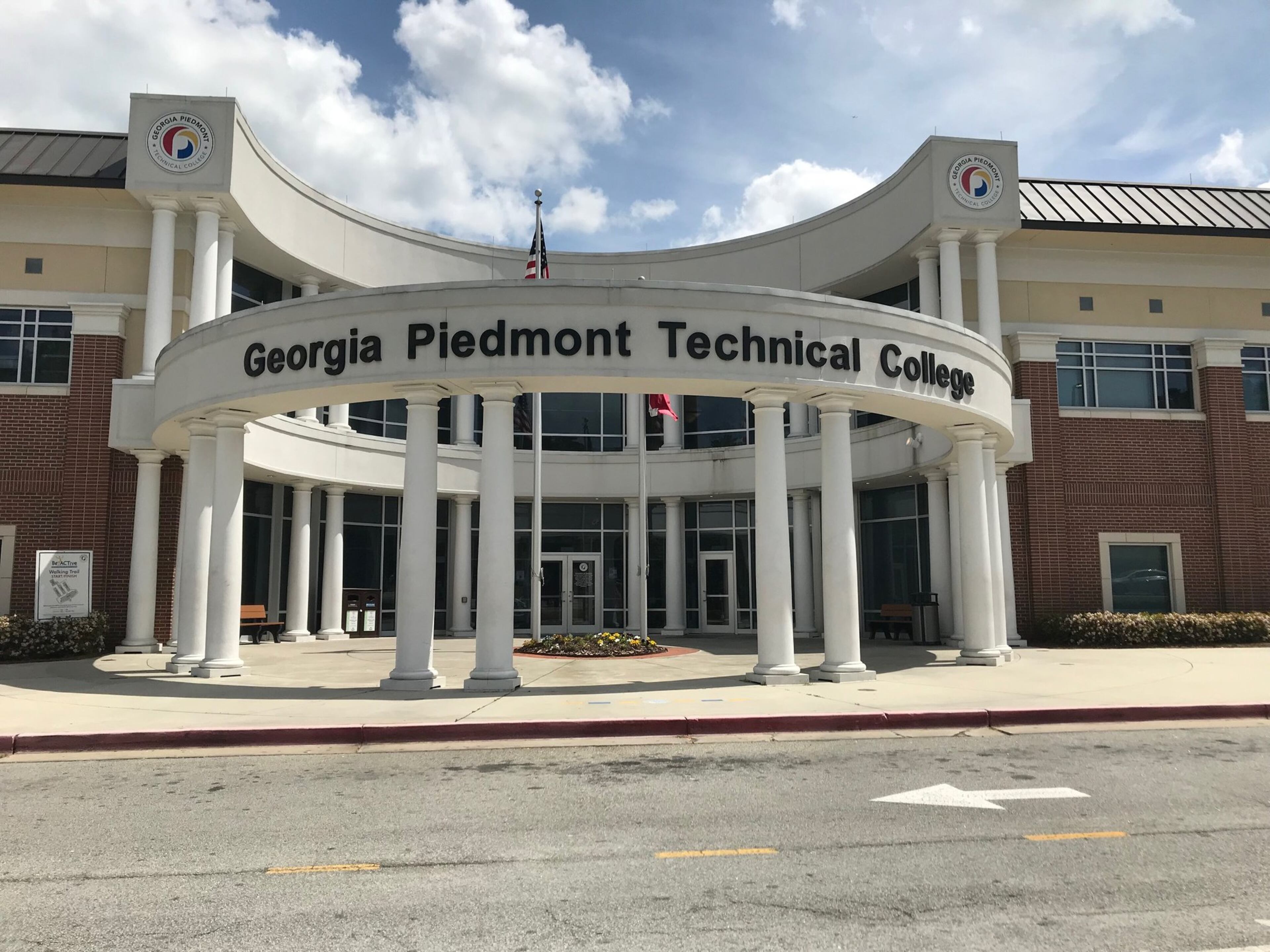AJC On Campus: Regents plan core changes, Michelle Obama at Spelman

The Georgia Board of Regents held its last meeting of the school year (they aren’t scheduled to convene again until August) and they didn’t coast. They approved some policy changes, announced an upcoming initiative that may change how its schools educate students and welcomed a surprise guest.
Here’s more about that and the recap about another special guest who visited an Atlanta college in this week’s AJC On Campus.
Changes coming to curriculum
University System of Georgia Chancellor Steve Wrigley announced during Tuesday’s meeting a team of leaders will explore ways to modernize the core curriculum for its 26 colleges and universities. Wrigley said the team will focus on degree attainment, affordability and accessibility. The new curriculum could be in place by the Fall 2020 semester, he said.
Kemp vows to work with Regents

Higher education wasn’t a primary topic in last year’s governor’s race, but Brian Kemp, who now calls the Governor’s Mansion home, came to Tuesday’s Regents meeting to express his support for the system and its students.
“I stand ready to continue to work with you,” the governor said in a brief address to the board that wasn’t announced on the agenda.
Kemp reminded the audience, which gave him a standing ovation before and after his remarks, that he has some familiarity with the University System of Georgia. Kemp was once chairman of the state Senate’s Higher Education Appropriations Committee.
Kemp currently has a personal stake in its success, particularly the University of Georgia. He said one of his daughters just completed her first year there and another daughter will be enrolling at UGA this fall.
The governor, who signed a state budget that will increase system spending by 6% in July, talked about the need to educate students to meet industry needs, particularly in areas such as healthcare, engineering and information technology.
Now about those Regents appointments
The AJC previously reported that Kemp challenged his predecessor Nathan Deal's appointment of three longtime members of the Board of Regents to new seven-year terms earlier this year, citing a technical error. Only one of the three members, C. Dean Alford, was present at Tuesday's meeting. Donald Leebern Jr. and Richard Tucker weren't there. Kemp spokesman Cody Hall said via email Tuesday he didn't have an update regarding when the governor will appoint any replacements to the board.
One word matters at UNG
The Board of Regents approved a request from the University of North Georgia to revise its mission statement by adding one word. The statement no longer includes “inquiry.” In its place “research.” In 2015, UNG created an Office of Research and Engagement and has quickly expanded its research efforts, nearly doubling the amount of grants and contracts awarded annually, from about $2.9 million to $5.7 million. UNG President Bonita C. Jacobs wrote in a May 8 letter to the University System of Georgia the change is desired to reflect its “research growth and momentum, as well as opportunities for students, talented faculty, and increased external funding.” UNG is currently listed as a “state university” in the state system. Maybe we’ll see a word change there as well in the future.
Celebrating the graduates
An estimated 32,500 students received degrees this semester from the University System of Georgia. A few got some special recognition in recent days. LeDarius Scott, who graduated this month from Augusta University, was honored Tuesday by the system for his leadership at the school. Scott, a two-time student government association (SGA) president, was awarded the Potts Award. It’s given annually to a SGA president who exhibits outstanding leadership. Scott said he plans to get a master’s degree in public administration.

Meanwhile, Georgia State University President Mark Becker gave a shout out during the undergraduate ceremony to Joyce Lowenstein for earning a degree in art history. Lowenstein turned 93 in April and graduated with honors. Here's more about her story.
Savannah State job cuts
Savannah State University announced Wednesday that 30 employees will lose their jobs, effective July 15. The cuts were made to plug a budget shortfall, which amounts at this time to approximately $3.5 million, said the university’s president, Cheryl Dozier, who is retiring in June. The university also cut spending by 4% across all units of the university.
Michelle Obama visits Spelman

Former first lady Michelle Obama stopped by Spelman College on Saturday to talk about her memoir "Becoming" with a group of students who read her book for a class. Judging from the enthusiastic greeting, they'd welcome a return visit.
Pension fund dispute
The Teachers Retirement System board, citing a recent state audit report, is considering whether to bill the University System of Georgia for the money. It could be a lot of money. Up to $600 million. University System officials dispute the auditors' conclusion and say the system pays more than its fair share and making new payments could result in major spending cuts at colleges and higher tuition or fees for students. Here's more about dispute.
Georgia State looks for ways to help its grad students
Georgia State University recently announced an effort to help its graduate students. Its new Graduate School will “work to increase the number and quality of graduate students, enhance professional development opportunities for graduate students, boost financial support for graduate education at Georgia State and collaborate with the university’s colleges and schools to strengthen interdisciplinary academic programs.” Georgia State had about 6,400 graduate students this year, the third-highest total in the University System.
New STEM effort at Georgia Piedmont Tech

The Association of Controls Professionals is launching a new program to increase diversity within building automation and STEM fields at Georgia Piedmont Technical College. The association is spearheading the development of the nation’s first non-proprietary certifications for the building automation industry and working with colleges around the country offering curriculum to adjust their programs to the new certification. The association said it chose Georgia Piedmont Tech because it maintains the nation's first associate degree program in building automation systems, which is a national model.
Education Notebook
AJC education columnist Maureen Downey recently took a look at the pay gap for teachers. Here's her report.


